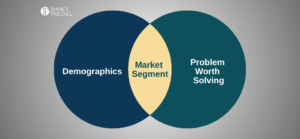From a podcast listener:
Mark, hello.
I just recently started listening to a couple of your podcasts and enjoy hearing various commentaries on the world of pricing. I am curious if you have recently commented on the housing industry? I was once FP&A manager of an organization that produced and installed custom stone countertops and challenged sales & marketing teams to ensure pricing reflects the market, which in housing, can fluctuate. With the extreme increase in the cost of lumber, I am now hearing of home builders not taking orders at a time when home prices have peaked. Which is a little crazy to think about.
I’m curious what advice you would give to a manufacturer when a COMPONENT input such as lumber is creating major problems for your end customers (so advice to countertop manufacturer in addressing lumber prices). It has honestly made me re-think pricing a little. The value of the countertop has not changed to the customer, but I would imagine (no longer directly involved in this industry at the moment) that there are home builders possibly asking for some pricing concessions, even if temporary, to all their suppliers, not just lumber, to get them through this unusual period of time. Would love to hear your thoughts on this.
Thanks!! J.
Hi J,
What an interesting question. The answer comes down to the definition of value we choose to use. You rightly point out that the value of a countertop doesn’t change, but that is only if we define value as the inherent value the end user will receive. The new home buyer needs and wants a nice countertop regardless of the price of lumber. The inherent value to the homebuyer doesn’t change. In B2B markets you can think of inherent value as economic value. How much money will this product help the buyer make or save?
However, a different definition of value often used in pricing is willingness to pay. Although we need to look at the willingness to pay of all channel members, in this case it’s probably the builder who is trying to influence the market. Home builders are more price sensitive now because their cost of lumber skyrocketed and they are trying to meet certain price points for their finished product. They are willing to put in effort to find or negotiate lower prices on non-lumber items. They still need countertops. They may still be willing to pay just as much as before, but they are trying harder not to.
What should the countertop manufacturer do? It depends on the other countertop manufacturers. If nobody is lowering their prices, then hold firm. The builder doesn’t want to pay the same as before, but he/she will. If the other countertop manufacturers are giving in to the pressure and lowering prices, then you will have to lower prices too if you want to remain competitive. Please note that I’m in no way advocating for matching competitor’s prices. You simply need to maintain some relative price differential.
On the other hand, you may be able to use this situation to act strategically and lock in a long term agreement. What if you lowered prices a few percent to help out the builder, but in exchange the builder signed an exclusive with you for the next 10 projects. That may not be a bad outcome.
In the end, all pricing decisions should be made by putting yourself in the mind of the buyer. If they don’t buy from you, what will they do? What price does it take so they don’t take that other option? When you think this way, it often makes these interesting questions more understandable.















